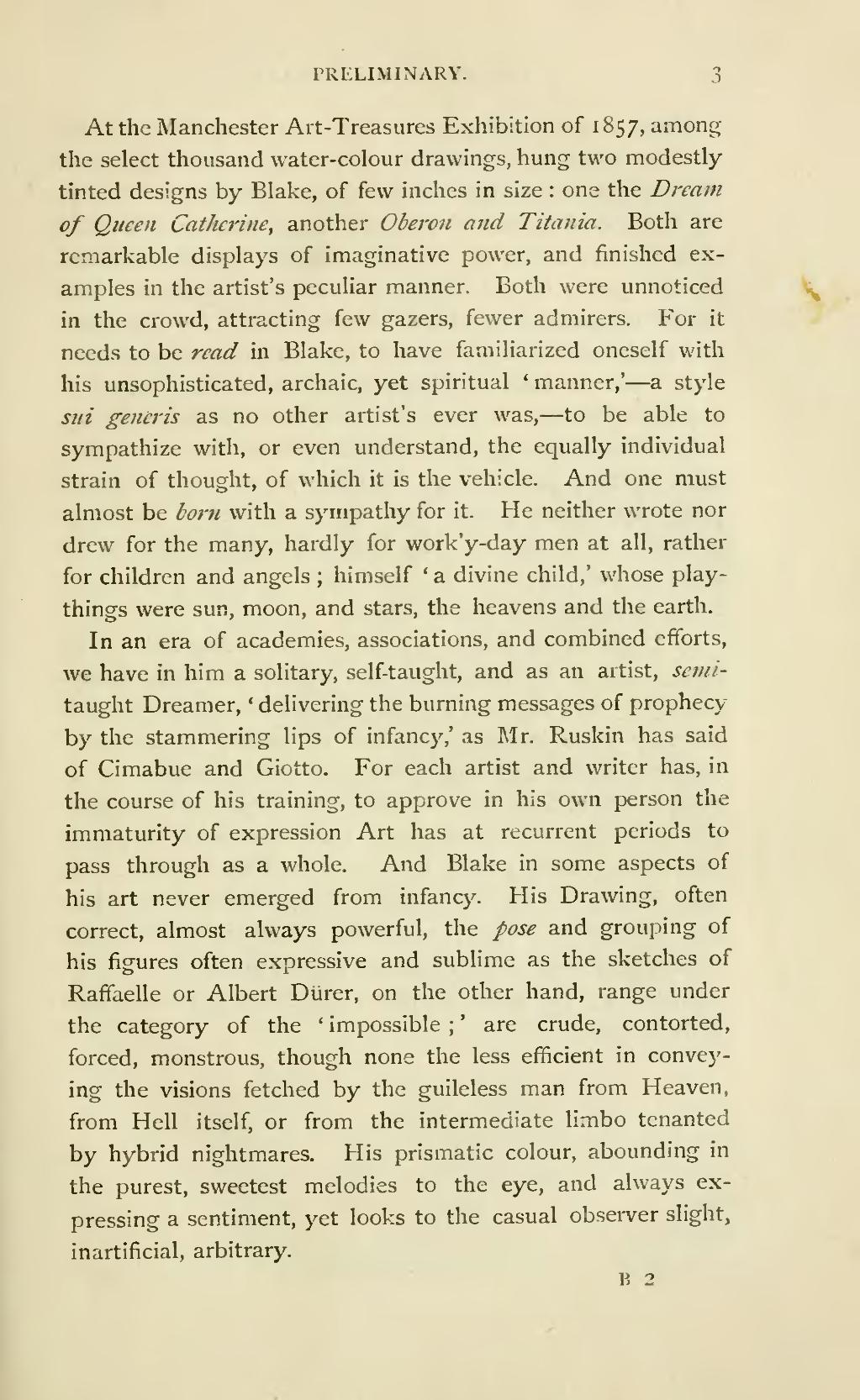At the Manchester Art-Treasures Exhibition of 1857, among the select thousand water-colour drawings, hung two modestly tinted designs by Blake, of few inches in size: one the Dream of Queen Catherine, another Oberon and Titania. Both are remarkable displays of imaginative power, and finished examples in the artist's peculiar manner. Both were unnoticed in the crowd, attracting few gazers, fewer admirers. For it needs to be read in Blake, to have familiarized oneself with his unsophisticated, archaic, yet spiritual 'manner,'—a style sui generis as no other artist's ever was,—to be able to sympathize with, or even understand, the equally individual strain of thought, of which it is the vehicle. And one must almost be born with a sympathy for it. He neither wrote nor drew for the many, hardly for work'y-day men at all, rather for children and angels; himself 'a divine child,' whose play-things were sun, moon, and stars, the heavens and the earth.
In an era of academies, associations, and combined efforts, we have in him a solitary, self-taught, and as an artist, semi-taught Dreamer, 'delivering the burning messages of prophecy by the stammering lips of infancy,' as Mr. Ruskin has said of Cimabue and Giotto. For each artist and writer has, in the course of his training, to approve in his own person the immaturity of expression Art has at recurrent periods to pass through as a whole. And Blake in some aspects of his art never emerged from infancy. His Drawing, often correct, almost always powerful, the pose and grouping of his figures often expressive and sublime as the sketches of Raffaelle or Albert Dürer, on the other hand, range under the category of the 'impossible;' are crude, contorted, forced, monstrous, though none the less efficient in conveying the visions fetched by the guileless man from Heaven, from Hell itself, or from the intermediate limbo tenanted by hybrid nightmares. His prismatic colour, abounding in the purest, sweetest melodies to the eye, and always expressing a sentiment, yet looks to the casual observer slight, inartificial, arbitrary.
